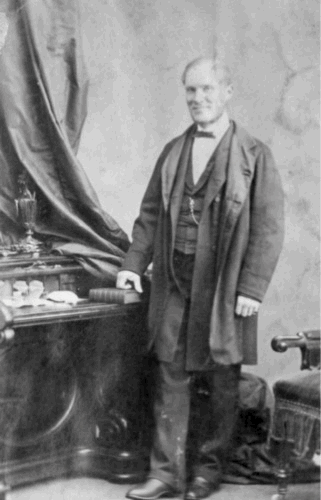
“
We are all members of a larger community, which depends on everyone playing their part
John Molson arrived in Montreal in 1782 at age 18 and built Canada's first industrial empire. Over five decades, he established what is now North America's oldest brewery, launched the first commercial steamboat, founded the first railway, and served as Bank of Montreal president—creating the infrastructure that transformed Canada from colonial outpost to commercial powerhouse.
Born in Lincolnshire, England in 1763, Molson was orphaned by age eight. His grandfather managed the family estate to fund his education and provide an inheritance. At 17, illness led doctors to recommend sea travel for his health. Molson chose Canada, arriving in Montreal in late 1782 with substantial capital and an entrepreneurial vision perfectly suited to post-Revolutionary War Canada.
Montreal's population preferred wine, but Molson identified opportunity in demographic change. The influx of 40,000 Loyalists after the American Revolution, combined with British military garrisons, created an increased demand for beer.
Molson applied scientific methods to brewing, introducing thermometers and saccharometers for consistent quality. The French Revolutionary Wars disrupted European beer imports, giving him near-monopoly conditions. By 1795, production reached 54,000 gallons annually. In 1811, he installed steam power for pumping water and grinding malt—Canada's first step toward industrial mechanization.
In 1809, Molson launched the Accommodation, North America's first commercial steamboat built entirely in Canada. He recognized transportation's importance for connecting scattered territories. In 1822, Molson consolidated his steamboat operations by founding the St. Lawrence Steamboat Company, giving him the majority control of St. Lawrence River transportation. By 1830, the company expanded to control the Ottawa River and the under-construction Rideau Canal through acquisition of the Ottawa Steamboat Company, giving him a near-monopoly across eastern Canada's major waterways.
Molson’s steamboat network moved 35,000 tons of merchandise and 111,000 passengers between 1836-1840. As principal shareholder in the Champlain and Saint Lawrence Railroad—Canada's first railway—he built the 16-mile link connecting Canadian markets to New York.
Molson diversified into banking and bought several shares of the Bank of Montreal serving as President of the bank from 1830-1836 guiding Canada's first major chartered bank through financial crises that saw major fur-trading houses collapse.
This nation-building extended beyond commerce to institutional development. Molson co-founded Montreal General Hospital in 1819 after recognizing the city's medical facilities were inadequate, serving as the hospital’s vice-president, then president, while providing significant capital and land. The hospital's partnership with McGill College created Canada's first medical school in 1829.
His cultural contributions included building Theatre Royal in 1825, Montreal's first permanent performing arts venue with 1,000 seats that hosted Edmund Kean, Charles Dickens, and other international performers. These institutional investments established Montreal as Canada's cultural and commercial metropolis.
Today, the Molson legacy lives on through the Molson Coors Beverage Company, a global giant formed after a 2005 merger. The Molson name is synonymous with Canada's national sport, hockey. The family has owned stakes in the Montreal Canadiens for generations, making them cultural stewards of one of Canada's most beloved institutions. They continue to shape the country through philanthropy, with the Molson Foundation donating millions to healthcare, education, and the arts.
John Molson established the precedent that Canadian success comes through innovation, persistence, and commitment to building institutions that serve both private enterprise and public good.

